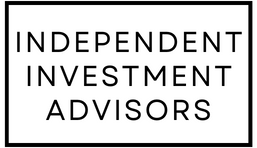< back to Investor Education Center

End of Year Financial Checkup
The end of a fiscal year brings many opportunities to reflect on our financial objectives, our financial blunders, and our financial accomplishments for the year. Think back to the goals you set for yourself at the beginning of the year. Did you get where you wanted to? If not, why? If so, congratulations! Let’s rinse and repeat!
There are lessons to be gleaned from both our failures and our achievements. Nowhere is this truer than in the economic arena. A thorough financial checkup during this introspective time of the year will help you establish a more straightforward financial plan for next year and beyond!
Begin at the end. Take an honest look at where you’ve ended up financially this year. Perhaps you had a particular financial goal in mind, like paying off a credit card or boosting your credit score, or putting more toward retirement. If you didn’t quite get there, ask yourself how far you got and what prevented you from hitting your target. Was it unrealistic? Maybe you had a significant life event that derailed you (such as divorce, new baby, job change). Consider whether you anticipate any such events in the coming year so that you can adjust your goals accordingly.
Once you have done some reflecting on whether your financial goals were met and what you should do differently next year, dive into some forward-looking practices to help you get a clearer picture of your current financial health. Start with your budget. Is the budget you established for yourself at the beginning of the year still adequate? Did you consistently go over or under in any areas? Adjust as needed for the next year. And if you’ve stuck to your budget, you hopefully have a surplus that can be used to pay down debt, get invested, or put aside for emergency funds.
Speaking of emergency funds, you should have at least six months’ worth of expenses saved up in the event of an emergency such as job loss or health crisis. If you don’t, try to start putting away a little each month toward this goal. It’s also an excellent time to double-check that you max out your 401(k) contributions. If it is not within your reach right now, strive to contribute at least as much as your employer will match.
Other financial well-being areas to look into include credit card interest rates, stocks, and insurance policies. Many people don’t know you can call your credit card company and negotiate a better interest rate, especially if you have been faithfully paying down your debt over the last 12 months. You might also use this time to study your stock portfolio. Are there adjustments that need to be made based on the economic outlook for the next year? Finally, review your insurance policies to ensure your coverages are still relevant. You may also qualify for new discounts, and you may need to add significant purchases made over the last year to your policy.
During this festive time of year, sitting down to examine your finances may sound like an ultimate killjoy. But as you turn your thoughts towards resolutions for your physical, mental, and spiritual health, don’t neglect your financial health.
